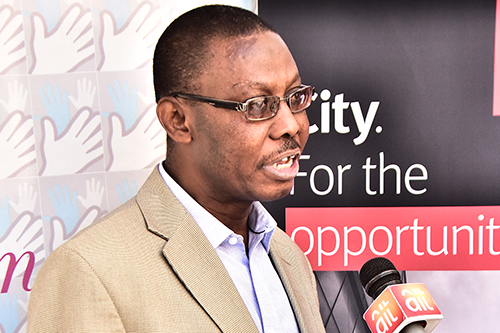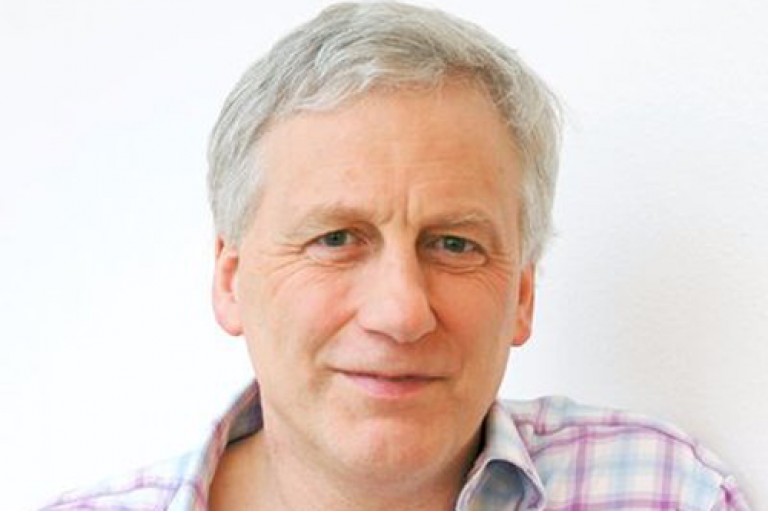Dr Abdullahi Tasiu Abubakar delivers training on journalists’ safety in conflict reporting in Nigeria.
By Eve Lacroix (Senior Communications Officer), Published
In January 2023, Dr Abdullahi Tasiu Abubakar, Senior Lecturer in Journalism, delivered the ‘Safety of Journalists in Conflict Reporting’ training programme to 24 editors and reporters covering conflicts in Nigeria.
He received City funding as part of the Higher Education Innovation Funding (HEIF) scheme to deliver the project in partnership with the Nigerian-based charity Daily Trust Foundation. He was joined by Dr Theophilus Abbah, the Director of the Daily Trust Foundation, who delivered a session on the risks Nigerian journalists faced in covering conflicts; Malam Mannir Dan Ali, who represented the Chairman of the Foundation, Alhaji Bilya Bala; and Immam Shuaib, the Programme Director of the Foundation.
Dr Abbah told participants that between 2017 and 2022, as many as 266 Nigerian journalists were victims of various attacks in the country, according to data from the Centre for Journalism and Innovation Development (CJID).
Discussing the importance of the training programme, Dr Tasiu Abubakar said: “For many journalists, safety training is what would make a difference between reporting on conflicts successfully and losing one’s life.”
Journalists’ safety in conflict zones
Dr Tasiu Abubakar is the Editor-at-Large of the Nigerian Trust newspapers and has previously worked for the BBC as Producer in London as well as serving as its Abuja Bureau Editor in Nigeria. One of his research specialisms is conflict reporting.
He put his personal experience and academic knowledge into practice to create the training programme, with the goal of delivering hands-on training sessions to Nigerian journalists on how to navigate dangerous environments and cover conflicts safely.
Speaking to the journalists, he said: “You must do a risk assessment for any dangerous assignment you are to undertake. You should be able to think about possible challenges you’d face on the field.”
Dr Tasiu Abubakar ran the sessions for participants, using examples from real-life scenarios and how they could respond to them – such as how to cover riots, what to do if kidnapped, and how to write about banditry. He reminded the participants to think about their safety no matter what beat they cover.
In Nigeria, the crises journalists report on include the Boko Haram insurgency, the Biafran separatist militancy and clashes between farmers and herders. His view is that if journalists remain safe, they can contribute to raising the public understanding of these crises with a view to resolving them.
He expresses hopes that the training programme will have a ripple effect within the media industry in Nigeria, with the 24 journalist participants passing on tips and skills to colleagues from the 13 news outlets they work at.
Journalism safety and right to free speech are tools of building democracy
At City, Dr Tasiu Abubakar is the Director of the PhD Programme in the Department of Journalism.

In addition to researching conflict reporting, his research also focus on journalism ethics. He considers the safety of journalists to be a key part of enhancing democracy. He says:
In the UK, a number of MPs have voiced concerns that the National Security Bill may pose threats to journalists and whistleblowers by potentially criminalising their rights to possess protected information. Dr Tasiu Abubakar says such a move would be injurious to freedom of expression.
Elsewhere at City, Professor Carmen Draghici of the City Law School has been researching media law and journalist safety for over a decade. She has argued that media workers require a category-specific legal solution, and was part of a team that campaigned for the adoption of a new United Nations Convention in 2018 that would protect journalists’ right to exercise freedom of speech.



